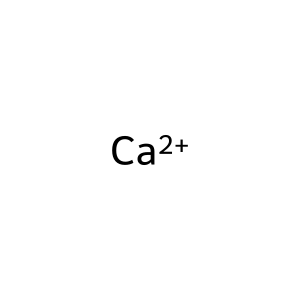Reaction: IP3R tetramer:I(1,4,5)P3:4xCa2+ transports Ca2+ from platelet dense tubular system to cytosol
- in pathway: Effects of PIP2 hydrolysis
The IP3 receptor (IP3R) is an intracellular calcium release channel that mobilizes Ca2+ from internal stores in the ER to the cytoplasm. Though its activity is stimulated by IP3, the principal activator of the IP3R is Ca2+. This process of calcium-induced calcium release is central to the mechanism of Ca2+ signalling. The effect of cytosolic Ca2+ on IP3R is complex: it can be both stimulatory and inhibitory and can the effect varies between IP3R isoforms. In general, the IP3Rs have a bell-shaped Ca2+ dependence when treated with low concentrations of IP3; low concentrations of Ca2+ (100–300 nM) are stimulatory but above 300 nM, Ca2+ becomes inhibitory and switches the channel off. The stimulatory effect of IP3 is to relieve Ca2+ inhibition of the channel, enabling Ca2+ activation sites to gate it.
Functionally the IP3 receptor is believed to be tetrameric, with results indicating that the tetramer is composed of 2 pairs of protein isoforms.
Functionally the IP3 receptor is believed to be tetrameric, with results indicating that the tetramer is composed of 2 pairs of protein isoforms.
Reaction - small molecule participants:
Ca2+ [cytosol]
Ca2+ [platelet dense tubular network lumen]
Ca2+ [cytosol]
Ca2+ [platelet dense tubular network lumen]
Ca2+ [cytosol]
Ca2+ [platelet dense tubular network lumen]
Reactome.org reaction link: R-HSA-139854
======
Reaction input - small molecules:
calcium(2+)
calcium(2+)
calcium(2+)
Reaction output - small molecules:
calcium(2+)
calcium(2+)
calcium(2+)
Reactome.org link: R-HSA-139854

